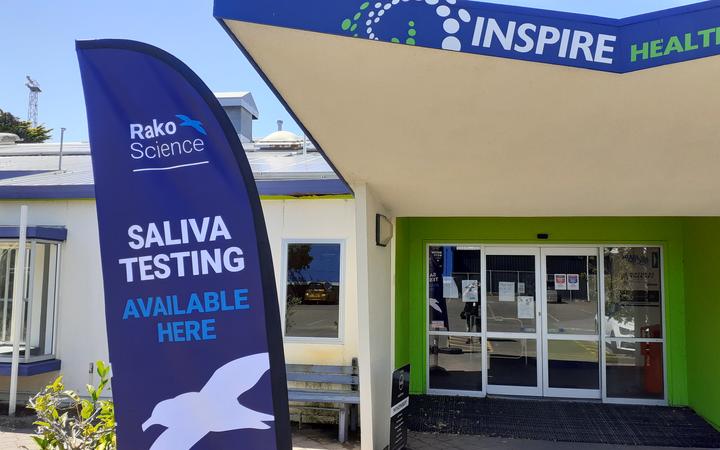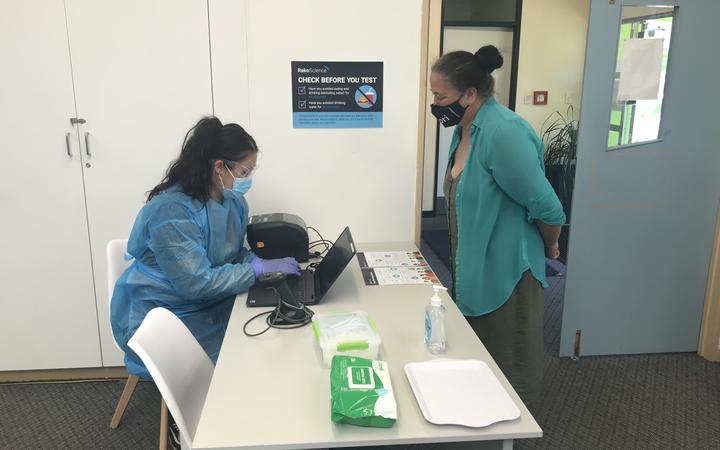An iwi is searching for a storage area for food and basic supplies as it prepares to support the Whanganui community through the widely expected Omicron outbreak.

Tūpoho is working to make sure support mechanisms are in place for the expected major Omicron outbreak. Photo: LDR / Moana Ellis
Whanganui iwi Tūpoho says it is talking with local, regional and national food suppliers to start getting stores to the city.
Covid-19 researcher Rāwiri Taonui has warned that Māori communities at dangerously high risk of Omicron need more support to prepare for isolation, infection and illness and some would struggle to afford a small, basic stockpile of food, disinfectants and medical supplies.
Tūpoho chair Ken Mair said the iwi was working to make sure support mechanisms were in place. The iwi collective Te Ranga Tupua, of which Tūpoho is a part, provided hundreds of food and healthcare packages in Whanganui, Rangitīkei, South Taranaki and the Waimarino district during the 2020 lockdown.
“Some people live day to day in regard to their survival,” Mair said.
“Leveraging off our experiences from 12 months ago with Covid, those are the types of support mechanisms that we’re presently making sure are strengthened so that we’re ready for a large number of our whānau that are going to be inflicted or impacted upon with this new variant Omicron.”
Tūpoho opened a new Covid-19 care hub in central Whanganui 10 days ago to offer saliva testing and wrap-around social services.
“Our people are on the backfoot in regard to economic wellbeing, employment and how they’re going to access kai when it does run out,” Mair said.

Whanganui iwi Tūpoho opened a new Covid-19 care hub in central Whanganui 10 days ago to offer saliva testing and wrap-around social services. Photo: LDR / Supplied
“What we did see 12 months ago is that the whole community, iwi and hapū came together and leveraged off each others’ influence to bring together the supplies.
“Our role will be to make sure that our whānau are well supported. We’ll be in there to advocate. Where clearly there are gaps within the system, we will ensure that we have the types of mechanisms in place to support our whānau. For example, we will have kai packages, we will have care packages.
“Presently we are looking at a storage area for kai, for supplies, etc. I don’t think people realise the pending tsunami in regard to Omicron. In this community, 50 to 100 cases a day will have a massive impact on all the support systems – health, educational, social – and I don’t think people understand what that really means in regard to their daily lives. We’ve got to be prepared as best we can.”
Mair said the government needed to put more resourcing into vulnerable communities.
“Māori communities, Pacific Island communities – and it needs to go through their entities, not through mainstream providers, because that failed dismally at the beginning of this pandemic. The government has begun to learn that the ‘by Māori for Māori’ approach is correct and has got positive results around the country in the last three to six months.
“Why wouldn’t you do it this way if you want to ensure that the most vulnerable in our communities have the support systems in place?”

Local Democracy Reporting is Public Interest Journalism funded through NZ On Air